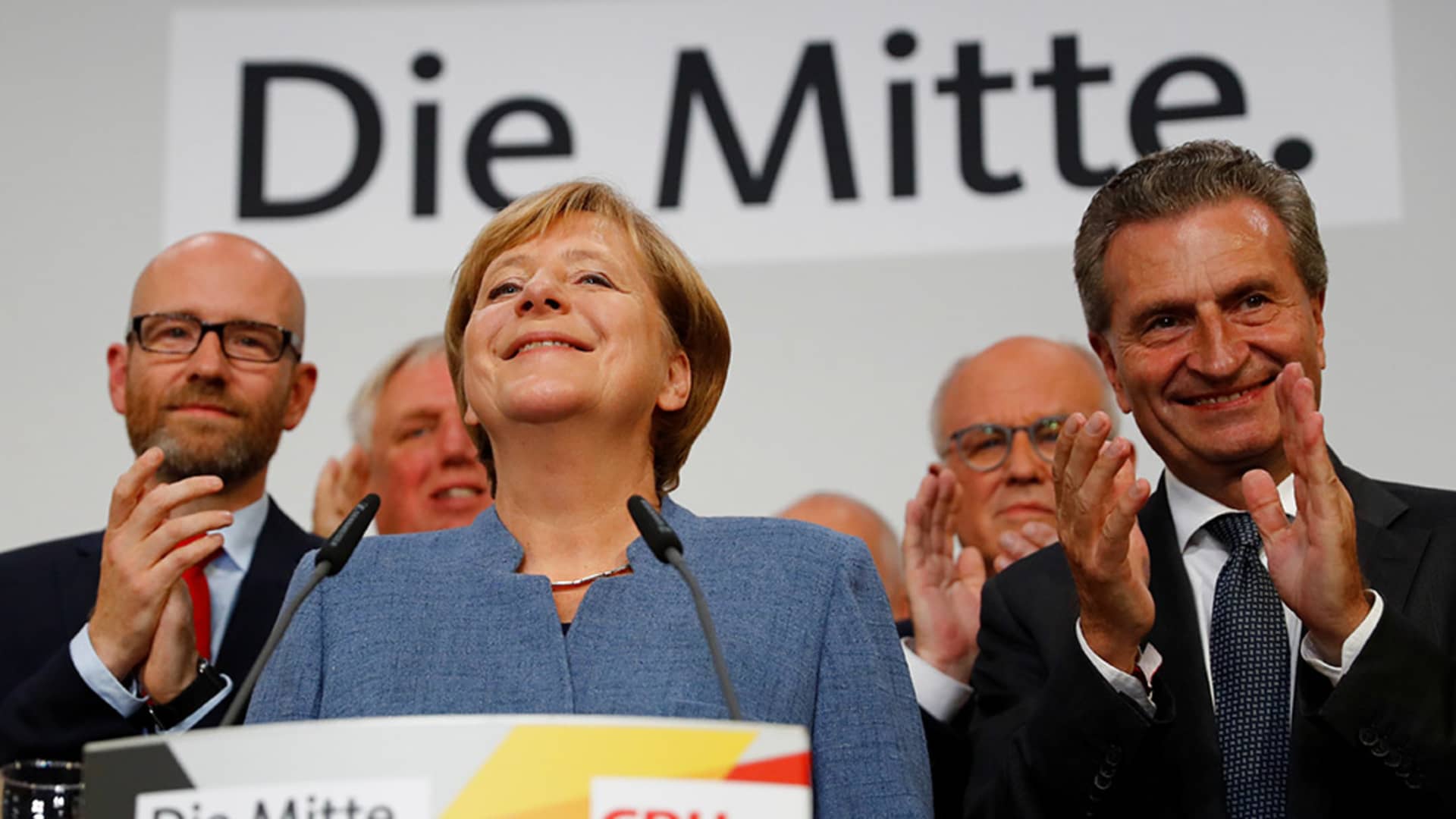German Conservatives And Social Democrats Begin Coalition Talks

Table of Contents
Key Players and Their Negotiating Positions
The success of these German coalition talks hinges on the ability of the CDU/CSU and the SPD to find common ground. Armin Laschet, the CDU's leader (though no longer Chancellor candidate after the election results), and key figures within the CDU/CSU bloc, will prioritize fiscal conservatism and economic stability. Their approach generally emphasizes controlled spending, balanced budgets, and a cautious approach to regulation.
On the other hand, the SPD, led by Olaf Scholz (who became Chancellor), and its key figures, will push for policies focused on social justice, robust climate action, and a strengthening of social safety nets. They are likely to advocate for increased investment in public services, renewable energy initiatives, and a more proactive approach to tackling inequality.
Key policy differences and potential areas of compromise include:
- Climate change policies: The CDU/CSU favors a more gradual transition to renewable energy, while the SPD advocates for a faster, more ambitious approach to achieving climate neutrality, potentially impacting the country's energy mix and industrial policy.
- Taxation: Disagreements exist regarding tax rates, particularly for corporations and high-income earners. The SPD is more inclined toward progressive taxation to fund social programs, a point of contention with the CDU/CSU's preference for lower taxes to stimulate economic growth.
- Immigration and integration: The parties hold contrasting views on asylum policies and the integration of migrants into German society. Finding a compromise that addresses both security concerns and humanitarian considerations will be crucial.
- Healthcare reforms: Debates surround the future funding and accessibility of the German healthcare system. The SPD is likely to push for increased public investment, whereas the CDU/CSU might favor market-based solutions.
The Stakes: Economic Recovery and European Integration
Germany faces significant challenges: navigating economic recovery from the pandemic, managing the energy transition towards renewables, and maintaining its influential role within the European Union. The outcome of these German coalition talks will significantly impact Germany's approach to these challenges.
- European Union budget and recovery fund: The coalition’s stance will shape Germany’s engagement with EU spending and reforms, impacting its influence within the bloc and its contribution to the overall recovery effort.
- Economic stimulus packages: Potential disagreements on the scale and nature of stimulus measures could significantly affect Germany's economic growth trajectory and its ability to support struggling sectors.
- Foreign policy: The new coalition's foreign policy orientation will determine Germany's role in international affairs, its relationships with key partners, and its approach to global challenges.
Potential Outcomes and Scenarios
Several scenarios could emerge from the German coalition talks:
- A stable grand coalition (CDU/CSU-SPD): This would likely result in a government capable of enacting significant reforms and providing political stability. However, internal disagreements could hamper decision-making.
- A minority government: A minority government, potentially involving the SPD, faces significant challenges in passing legislation and maintaining stability. It might require considerable negotiation and compromise with other parties.
- Failed coalition talks: This would lead to political uncertainty and potentially new elections, further delaying critical policy decisions and exacerbating existing challenges.
Smaller parties, such as the Greens and the FDP, could play a significant role in influencing the negotiations and determining the final outcome, potentially forming a three-party coalition. Their participation adds complexity and necessitates further compromises from the CDU/CSU and SPD.
Public Opinion and Media Coverage
Public opinion on the German coalition talks is divided, with varying levels of support for different coalition scenarios. Media coverage plays a crucial role in shaping public perception and influencing the negotiations. Polls and surveys will reflect public sentiment and preferences for specific policies and coalition partners. The media also serves as a platform for debates and discussions, potentially influencing the negotiating positions of the parties and highlighting controversies. Maintaining public trust throughout these talks will be crucial for the eventual government's legitimacy.
Conclusion
The German coalition talks are a critical juncture for Germany and Europe. The key issues discussed – economic recovery, climate change, and European integration – will shape the nation's future trajectory and its role in the EU. The outcome, whether a stable grand coalition, a minority government, or a return to the polls, will have profound implications. Understanding the potential outcomes and the nuances of the ongoing negotiations is crucial for assessing the future direction of German and European politics.
Call to Action: Stay informed on the latest developments in the German coalition talks. Follow reputable news sources for updates on this crucial political process shaping Germany's future. Continue to research and engage with the ongoing debates surrounding the coalition’s potential policies. Understanding the German coalition talks is crucial for understanding the future direction of German and European politics.

Featured Posts
-
 Our Farm Next Door Amanda Clive And Their Kids Daily Life
Apr 30, 2025
Our Farm Next Door Amanda Clive And Their Kids Daily Life
Apr 30, 2025 -
 Johnstons Record Setting Goal Fuels Stars 6 2 Victory Over Avalanche
Apr 30, 2025
Johnstons Record Setting Goal Fuels Stars 6 2 Victory Over Avalanche
Apr 30, 2025 -
 Summer 2025s Must Have Slides Style Comfort And Performance
Apr 30, 2025
Summer 2025s Must Have Slides Style Comfort And Performance
Apr 30, 2025 -
 Trade Shows A Key Marketing Touchpoint For Schneider Electrics Success
Apr 30, 2025
Trade Shows A Key Marketing Touchpoint For Schneider Electrics Success
Apr 30, 2025 -
 Coronation Street Actor Reveals All After Weepy Final Day
Apr 30, 2025
Coronation Street Actor Reveals All After Weepy Final Day
Apr 30, 2025
